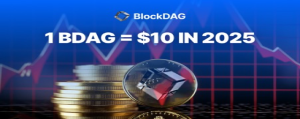US Govt shutdown prompts further stay of “spoofing” cases
Court extends stay of CFTC actions against traders accused of spoofing.

As the United States Government shutdown continues, its effects on the work of various regulators widen. The number of cases that the Commodity Futures Trading Commission (CFTC) seeks to put on hold due to the shutdown has grown over the past couple of weeks. The cases include those targeting traders accused of spoofing.
On Tuesday, January 8, 2019, the Illinois Northern District Court issued orders extending the stay of the cases targeting Jiongsheng Zhao, James Vorley and Cedric Chanu.
In both cases, the orders are explained by the fact that the lapse of congressional appropriations funding the federal government continues.
Let’s recall that, in January 2018, the CFTC announced the filing of a federal court enforcement action against Jiongsheng Zhao, of Australia, charging him with spoofing and engaging in a manipulative and deceptive scheme in the E-mini S&P 500 futures contract market on the Chicago Mercantile Exchange (CME).
The CFTC Complaint alleges that from at least July 2012 through at least March 2017, Zhao repeatedly engaged in manipulative or deceptive acts and practices by “spoofing” (bidding or offering with the intent to cancel the bid or offer before execution). On thousands of occasions, Zhao placed an order that he wanted to execute and thereafter entered a larger order on the opposite side of the market that he intended to cancel before execution. In placing these larger spoof orders, Zhao intentionally or recklessly sent false signals of increased supply or demand designed to trick market participants into executing against the orders he wanted filled.
Also in January 2018, the CFTC filed a civil enforcement action against James Vorley, a U.K. resident, and Cedric Chanu, a United Arab Emirates resident, charging them with spoofing and engaging in a manipulative and deceptive scheme in the precious metals futures markets.
The CFTC Complaint alleges that beginning in at least May 2008 and continuing through at least July 2013, while employed at a large financial institution, Vorley and Chanu engaged in a manipulative and deceptive scheme while placing orders and trading in the precious metals futures markets on a registered entity. Specifically, in furtherance of the scheme, Vorley and Chanu repeatedly engaged in manipulative or deceptive acts and practices by spoofing (bidding or offering with the intent to cancel the bid or offer before execution). On numerous occasions, Vorley and/or Chanu placed orders for COMEX gold, silver, platinum or palladium futures contracts that they wanted to get filled (Genuine Order) and entered orders for the same contract on the opposite side of the market that they intended to cancel before execution (Spoof Order). In placing these Spoof Orders, Defendants Vorley and Chanu intentionally or recklessly sent false signals of increased supply or demand to trick market participants into executing against the Genuine Orders Vorley and Chanu wanted to get filled. Vorley and Chanu also engaged in spoofing in coordination with other traders on the precious metals desk and taught another trader on the desk how to spoof.
In its civil litigation targeting Vorley and Chanu, the CFTC seeks, inter alia, civil monetary penalties, disgorgement, and a permanent injunction against future violations of the Commodity Exchange Act and CFTC Regulations.
The CFTC has sought to stay a number of other lawsuits too in light of the latest US Government shutdown. The list includes actions against alleged binary options fraudsters Blake Kantor, Nathan Mullins, Blue Bit Banc, Blue Bit Analytics, Ltd., G. Thomas Client Services, and Blue Wolf Sales Consultants, as well as Jason B. Scharf, doing business as Citrades.com and AutoTradingBinary.com.









